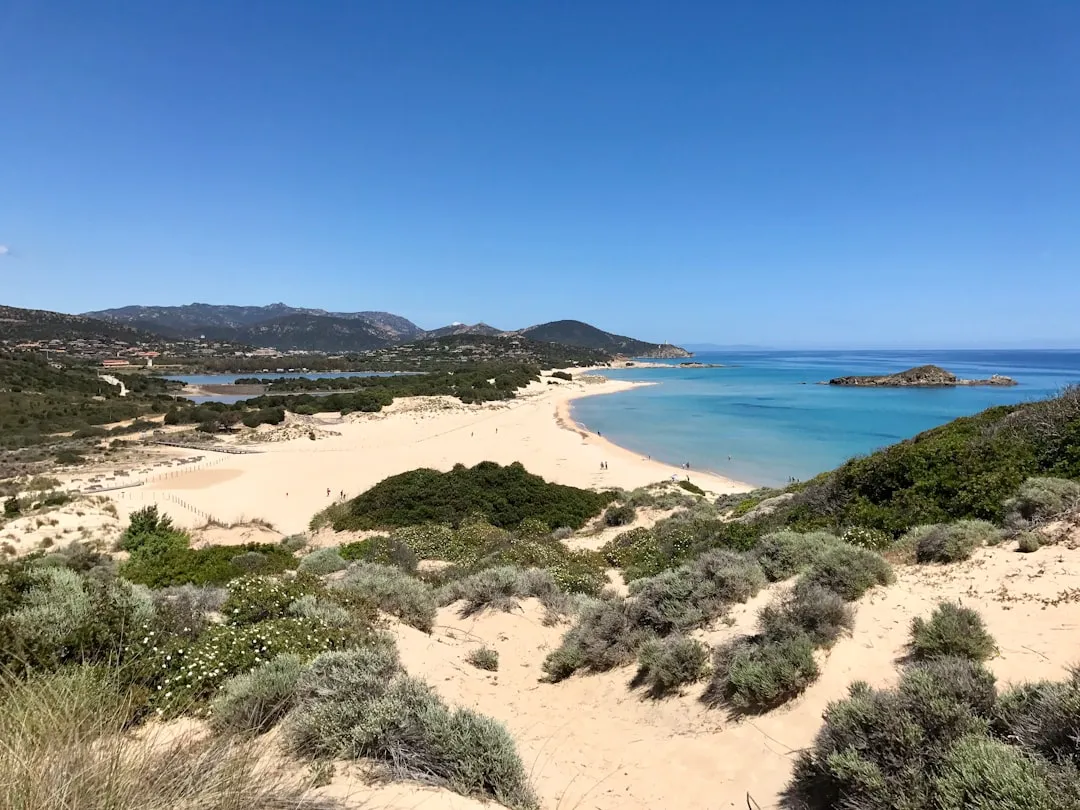Moving to Italy: A Guide for Expats
Dreaming of making Italy your new home? You’re not alone. Each year, countless expats are drawn to this captivating country, enchanted by its rich history, exquisite cuisine, and high quality of life.
Being Italian, I understand the steps needed to settle smoothly into my country. In this comprehensive guide, I'll walk you through each step of the relocation process, making your move to Italy as seamless as possible.
Step 1: Choose the Right Visa for Your Situation
Before embarking on your Italian adventure, it's essential to determine the visa that aligns with your needs. Italy offers a variety of visa options depending on your purpose, whether it’s studying, working, retiring, or investing.
Popular Visa Options for Expats
- Student Visa: Planning to study in Italy? The student visa allows you to stay for the duration of your studies and take on part-time work.
- Work Visa: If relocating for employment, you’ll need a job offer from an Italian employer, who will sponsor your work visa.
- Digital Nomad Visa: Italy is developing a digital nomad visa for remote workers, letting you enjoy Italian life while working for a foreign employer.
- Elective Residency Visa: Ideal for retirees and those with sufficient passive income, this visa allows long-term residency without requiring employment in Italy.
- Investor Visa: If you plan to invest in Italy, this visa offers residency options for significant financial investments.
Tip: Start your visa application process at least 3 to 6 months before your intended move to allow time for documentation and consulate appointments.
Step 2: Gather Essential Documents
Italian bureaucracy can be complex, but preparation will save you time and stress. Key documents typically include:
- Passport: Ensure it’s valid for at least six months.
- Visa application forms: These vary based on visa type.
- Proof of financial stability: Bank statements or other documents proving your financial resources.
- Health insurance: Proof of health insurance is required for visa applications.
- Accommodation details: Whether a rental agreement or a temporary booking, be prepared to show where you intend to stay.
Note: Renting in major cities like Rome or Milan can be competitive. Websites like Idealista, Immobiliare.it, and Casa.it are great resources for finding long-term rentals.
Step 3: Find Housing in Italy
From urban apartments to charming countryside villas, Italy offers diverse housing options. Consider the following as you search:
- Location: Decide if you prefer bustling cities like Rome, Milan, and Florence, or quieter areas like Tuscany or Umbria.
- Cost of Living: Rental costs are higher in major cities than in smaller towns or rural areas.
- Public Transport: If you don't have a car, make sure your accommodation has easy access to public transit.
Step 4: Obtain Your Codice Fiscale (Italian Tax Code)
The Codice Fiscale is essential for most transactions in Italy, from renting an apartment to opening a bank account.
- Where to Apply: Visit your local Agenzia delle Entrate (Italian Revenue Agency) office.
- Required Documents: Bring your passport and proof of address.
- Cost: The Codice Fiscale is free to obtain.
Tip: Apply for your Codice Fiscale soon after arriving, as it's required for many formalities.
Step 5: Apply for Residency
If you’re staying in Italy long-term, you’ll need to apply for residency. This step is crucial for accessing public services, registering for healthcare, and establishing your legal status in Italy.
- Where to Apply: Visit the local Ufficio Anagrafe (Registry Office) at your city’s Comune (town hall).
- Required Documents: Typically, you’ll need your passport, visa, Codice Fiscale, proof of accommodation, and proof of financial stability or employment.
- Timeline: Residency applications should be completed within 8 days of your arrival if your visa requires it.
Tip: The process may vary slightly by region, so it’s helpful to check specific local requirements or consult with a relocation specialist.
Step 6: Open an Italian Bank Account
Opening an Italian bank account simplifies paying rent, bills, and other expenses. You’ll need:
- Codice Fiscale
- Proof of address
- Proof of income (some banks may require this)
Popular banks for expats include UniCredit, Intesa Sanpaolo, and Banca Monte dei Paschi di Siena. Some banks allow non-resident accounts for newcomers awaiting full residency.
Step 7: Arrange Health Insurance
Italy’s healthcare system is highly regarded, with both public and private options available. Depending on your visa type, you may need private health insurance initially.
- Public Healthcare: Once registered as a resident, you’ll have access to Italy’s public healthcare system.
- Private Insurance: For quicker access or additional peace of mind, private insurance through providers like Allianz or Generali can be beneficial.
Step 8: Understand the Italian Tax System
If you’re planning a long-term stay, it's important to understand Italy’s tax system.
- Resident Status: You’ll be considered a tax resident if you stay in Italy for more than 183 days per year.
- Non-resident Status: You’re taxed only on Italian-sourced income.
- Double Tax Treaties: Italy has agreements with many countries to avoid double taxation.
Tip: Consult with a local commercialista (accountant) to ensure compliance with Italian tax regulations.
Step 9: Immerse Yourself in Italian Culture
Moving to Italy is about more than just logistics; it’s about embracing a new way of life. Italy has something for everyone, from the historic landmarks of Rome to the serene vineyards of Tuscany.
- Learn Italian: While many Italians speak English, knowing basic Italian will enhance your experience and ease the transition.
- Enjoy the Lifestyle: Italy’s pace of life includes long lunches, weekend outings, and a deep appreciation for art, food, and community.
Step 10: Connect with Other Expats
Building a network can make the transition smoother. Italy has thriving expat communities in major cities and even smaller towns. Joining online forums, local meetups, and coworking spaces can help you find your tribe.




